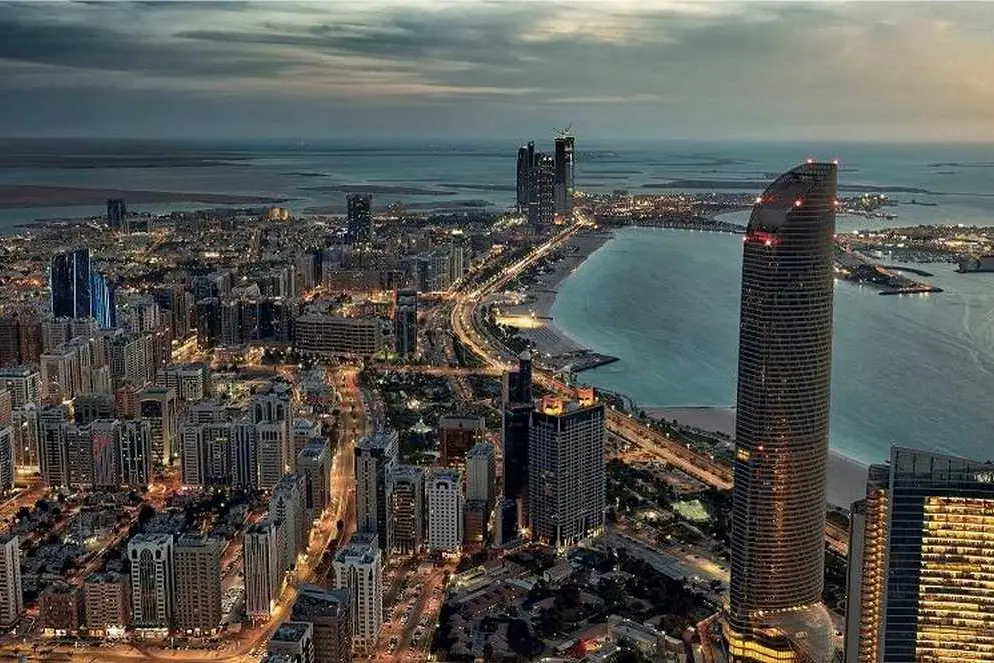PHOTO
International Monetary Fund (IMF) has revised down real GDP growth forecast for the UAE to 2 per cent for 2018 and 3 per cent for the next year.
In October 2017, IMF had predicted 3.4 per cent growth for the UAE for 2018. According to the Ministry of Economy estimates, GDP will grow by 3.9 per cent this year.
Data in the IMF's Global Prospects and Policies report released on Tuesday predicted that inflation in the UAE is also projected to spike this year to 4.2 per cent from 2 per cent last year. But it will ease to 2.5 per cent in 2019.
Analysts believe that the recently-introduced 5 per cent value-added tax in the UAE and Saudi Arabia could be one of the key reasons for the spike in inflation this year.
World Bank has also projected 2.5 per cent GDP growth for the UAE in 2018, higher than last year, as oil production capacity is expected to increase and the strength of the non-oil economy will boost prospects particularly later in the forecast period as megaproject implementation ramps up ahead of Dubai's hosting Expo 2020.
"Export earnings will pick up gradually, with non-oil goods trade and services outpacing oil export growth, although the current account will remain in modest surplus. The 2018 budgets presented by different emirates and the federal government over the last few months are expansionary, with Dubai's budget containing a notable uptick in infrastructure spending. However, on the back of higher oil prices, improved oil production capacity and higher non-oil revenues, the fiscal deficit is projected to reverse by 2020. Inflation is projected to rise to 2.9 per cent in 2018 due to the VAT but is projected to moderate thereafter," World Bank said in a report on Monday.
Fisch Asset Management, a credit analysis firm, said on Tuesday that growth in Abu Dhabi and Dubai will remain at a sustained level of approximately 3 per cent over the next few years, if oil prices remain stable around current levels.
Philipp Good, CEO, Fisch Asset Management, pointed out that Dubai's high per capita income is more stable when compared with regional peers. For Abu Dhabi, despite a sharp correction in the oil price, there has only been a very slow increase in sovereign debt from an already low level. While Dubai's debt, despite a steady decline, remains elevated and the Emirate has high investment requirements for Expo 2020.
"The UAE is seeing a new period of slow and steady economic growth, supported by twin boosters of oil-producing giant Abu Dhabi partnered with Dubai benefiting from many years of efforts towards diversification. The UAE should certainly prepare against risks, however - for example, Dubai's tourism and construction industry is strongly dependent on geopolitical stability, and regional, European and international visitors, meaning it will be exposed to any escalation in diplomatic disputes within the GCC or the knock-on effects of Brexit," he said.
Mena region
Meanwhile, IMF forecast of other Middle East and North African (Mena) countries were cut slightly as well, especially commodity-exporting countries.
IMF noted that said Saudi Arabia and some other oil exporters in the Middle East and sub-Saharan Africa have experienced recessions and/or substantial growth slowdowns in recent years as they started adjusting fiscal policy to the permanent loss of commodity revenues.
Overall, Mena is forecast to grow 3.2 per cent this year as compared to 2.2 per cent in 2017. The growth is expected to pick up pace next year as the region will 3.6 per cent. Inflation in Mena averaged around 6.6 per cent last year and is expected to reach 8.7 per cent this year but will ease next year to 7.1 per cent, reveals International Monetary Fund data.
IMF noted that the extent of macroeconomic stress associated with the large decline in oil prices has become more apparent over time, with projected growth in oil exporters' GDP, and especially domestic demand, revised down through 2017 even as oil prices firmed somewhat.
Looking ahead, it said the increase in commodity prices in the second half of 2017 creates space for oil exporters to consolidate fiscal balances more gradually but is only a very partial reversal of their initial terms-of-trade losses during 2014-16. In some cases, the price increase also reflects production restraints that directly weigh on real GDP.
Globally, IMF sees global economy growing at a solid pace through next year, boosted by faster expansion in the United States and Europe but after that risks will build, the International Monetary Fund said Tuesday. It predicts world growth of 3.9 per cent in 2018 and 2019, despite raising its estimates for US and EU growth compared to the January edition.
Copyright © 2018 Khaleej Times. All Rights Reserved. Provided by SyndiGate Media Inc. (Syndigate.info).





















